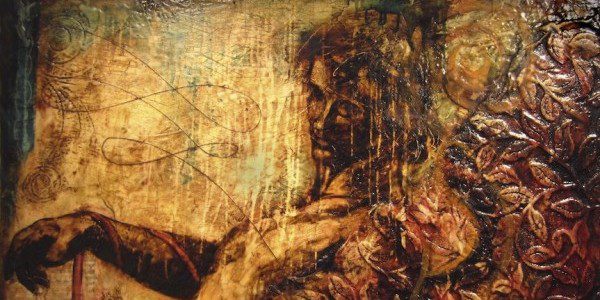Steven Davis, a Christian theology and apologetics professor, recently deconverted from Christianity and theism to atheism. He is telling his story over on the blog “Almost Heresy.” You can read the first installment here.

I summarized and briefly engaged Davis on what I thought to be something of a conflict or even contradiction in the way he described the “guiding principles” that ultimately led him to become an atheist–and subsequently to resign his professor position at a Christian college.
On the one hand, Davis acknowledges that “humans are not objective,” which means he acknowledges the subjectivity of knowledge, truth, and belief. He also acknowledges the “social construction of reality”–which is the title of an important sociology book which describes the cultural and social dissemination of belief (a book written by theists, as one of my blog’s commenters pointed out).
The contradiction, I suggested, is that Davis’ confidence in critical thinking bucks up against his acknowledgment of the subjectivity of human knowing as well as against the socialization of all knowledge and belief. This tension is intriguing, for reasons I’ll explain a little further below.
In any case, I assume that Davis’ response would be along the lines of this: Because of the subjectivity and social formation of knowledge (and, for Davis’ purposes, of religious belief in particular), we must be especially vigorous in applying objective, critical reflection on our beliefs–especially religious ones (which tend to lack evidential support and tend to include all sorts of preposterous claims).
This brings us to the occasion of today’s post. Davis’ second installment, posted yesterday. It includes some interesting personal reflection on his experience of leaving theism. He notes that, while becoming an atheist has resulted in many losses (relationally, vocationally, and economically), it also has enabled him to live an authentic life (which he clarifies to mean simply that he can now “be himself”) and to discover who his genuine friends are. All things considered, that’s not a bad trade-off.
A theme continues from the first to the second post: The primacy of “rationalism,” or critical thinking, and the supreme value Davis accords to rationalism over against emotional and social influences. Beliefs dependent on emotional experience are to be distrusted and social formation/transmission of knowledge should similarly be held up to the light of “objective,” critical rationality.
We are to (objectively) follow the evidence wherever it leads. But too many of us, Davis suggests, refuse to do this. Using Plato’s cave analogy, Davis suggests we (theists) are afraid to look away from the shadows on the wall and turn into the light so we can see reality for what it is and our deceptions and illusions for what they are.
By the way, I’ve also heard Plato’s analogy used to illustrate religiousconversion–and it’s interesting to note that Plato was not an atheist. In any case, Davis writes,
But, frankly, the evidence (or lack thereof) doesn’t matter to most people. The overwhelming majority of people become religious due to socio-cultural and emotional-psychological factors, and they remain religious for socio-cultural and emotional-psychological reasons.
Here Davis pits rationality over against “socio-cultural” factors and “emotional-psychological” reasons.
I’m sure a valid distinction can be drawn between cognitive/intellectual/rational thinking and “emotional-psychological” reasoning. From what I understand, however, rational cognition and emotional thinking are not entirely separable. Often, what we assume to be “rational (objective) thinking” is at least partly (and sometimes largely) driven by an emotional or intuitive core beneath.
Now, I’m not saying any of this to question Davis’s understanding of the process by which he came to reject theism. I’m glad that he’s found freedom and authenticity within atheism. I have no goal of talking him back into theistic belief.
I’m taking Davis’ story as an opportunity to think about what happens with religious belief–and religious dis-belief–more generally. Personally, I’ve long understood “critical thinking” as always already captive to the limitations of the human experience and to context. This doesn’t mean we throw it out, it just means that we temper our expectations of what it gives us. I also think it means we should accept that reason, emotion, and socio-cultural context are not ultimately separable–nor should they be.
From what I’ve seen and read of other de-conversion narratives, there are often very personal, experiential, and even emotional components to these major transitions in belief and life. These personal experiences are often mentioned in the many testimonies given on ex-christian.net, that repository of de-conversion narratives that Davis also mentions. While many ex-theists have intellectual reasons for leaving God or losing belief, those reasons are often also tied up with stories of relational disconnection; abandonment; revelations of hypocrisy in religious leaders, family and friends; and so on. The intellectual aspects are often intertwined with emotions of anger, disgust, disappointment, and so on.
Of course, the accompanying and underlying emotions aren’t always negative. Intellectual transitions can be accompanied by positive emotions and experiences, too: relief, a sense of openness, feelings of freedom, etc.
There’s a narrative context to intellectual thought and emotions are intertwined with rational reflection. This is not to disparage or undermine intellectual reasons and critical reflection. This is just what it means to be human.
I guess I’m just uncomfortable with the implied suggestion that if we would all be rational, objective, and honest, we’d all become atheists, too.
Finally, I’ll just say there are big fences at the edges of rational thought–particularly when the object of rational reflection is God, or the “metaphysical,” or transcendent, or whatever. By definition, rationality would have no claim to penetrate beyond these edges completely–whether in the attempted “proofs” for God’s existence (as in Davis’ former field of study, Christian apologetics) or in the purported attempt to disprove God’s existence by some supposedly universal “critical method.”
Incidentally, for those of you interested in Davis’ reasons for his deconversion, he does plan to spell out those reasons in upcoming posts.











